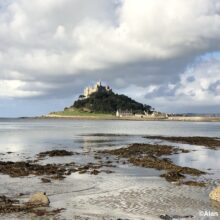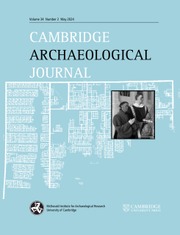-
- You have access: full
- Open access
- ISSN: 0959-7743 (Print), 1474-0540 (Online)
- Editor: Dr John Robb University of Cambridge, UK
- Editorial board
The Cambridge Archaeological Journal is a leading international journal for social archaeology. It publishes articles on the archaeology of every region, from the northern latitudes through the global South and even Antarctica, and on every period from the earliest stages of human evolution and cognition through to the archaeology of contemporary cities. CAJ also publishes articles on archaeological theory and empirical discoveries whose significance transcends a specific region. CAJ's articles are distinctive for their focus upon ideas and interpretation; while articles may deal with the archaeology of a specific place or method, they also discuss conceptual aspects to compellingly engage archaeologists working with other materials.
As well as individual articles, CAJ periodically publishes special thematic sections. The journal is published four times a year, with articles appearing online in advance as well; it is indexed in leading journal indexes, and has a distinguished editorial board including scholars of international repute. In 2024 the journal became fully Open Access, with OA options for every author. The editor is John Robb.
Latest content
Archaeology « Cambridge Core Blog

-
‘Are you tough enough?’: Rethinking the safety, culture and care of archaeologists in the field
- 05 February 2026,
- From the old ‘Cowboys of Science’ adage to swashbuckling fictional characters like Indiana Jones and Lara Croft, the perception that fieldwork, and archaeology...

-
Community collaboration: My experience as an undergrad Production Assistant on ‘Advances’
- 30 January 2026,
- My name is Adrianna Wagner, and I am a third-year student at Lehigh University in Bethlehem, Pennsylvania, where I study English literature with minors in marketing...

-
Excavating the British tin trade that shaped the Bronze Age
- 19 January 2026,
- In 2025, we published an article in Antiquity, demonstrating through chemical and isotopic analyses that, c. 1300 BC, tin ingots made from tin ores in southwest...

Facebook